Wojciech Romuald Bogusławski was a Polish actor, theater director and playwright of the Polish Enlightenment. He was the director of the National Theatre, Warsaw,, during three distinct periods, as well as establishing a Polish opera. He is considered the "Father of Polish theatre."
 W
WJózef Grzegorz Chłopicki was a Polish general who was involved in fighting in Europe at the time of Napoleon and later.
 W
WJan Henryk Dąbrowski was a Polish general and statesman, widely respected after his death for his patriotic attitude, and described as a national hero who spent his whole life restoring the legacy of Poland.
 W
WFranciszek Ksawery Dmochowski (1762–1818) was a Polish Romantic novelist, poet, translator, publisher, critic, and satirist. Father of Franciszek Salezy Dmochowski.
 W
WIgnacy Erazm Działyński (1754–1797) was a Polish nobleman (szlachcic) of Ogończyk coat of arms and a military officer, known for his participation in the Warsaw Uprising of 1794.
 W
WDominik Dziewanowski was a Polish military officer, a general in the Army of the Duchy of Warsaw.
 W
WAlojzy Feliński was a Polish writer.
 W
WWojciech Bartos(z) Głowacki (1758–1794), known also as Bartosz Głowacki, was a Polish peasant and the most famous member of the kosynierzy during the Kościuszko Uprising in 1794. Born as Wojciech Bartosz, he became a Polish national hero during the battle of Racławice on 4 April 1794, when he captured a Russian cannon by putting out the fuse with his hat. For this, he was promoted to the rank of 'chorąży' and received the surname 'Głowacki'. He was mortally wounded during the battle of Szczekociny on 6 June that year. Since then he has become one of the symbols of the Uprising and Polish valor.
 W
WCyprian Godebski was a Polish poet, novelist and father of writer Franciszek Ksawery. He was an outstanding poet of the so-called "Legions Poetry".
 W
WŁukasz Gołębiowski was a Polish ethnographer, historian, translator and librarian. In 1794, he fought as a Polish army officer in the Kościuszko Uprising against Russia and participated in the Battle of Szczekociny.
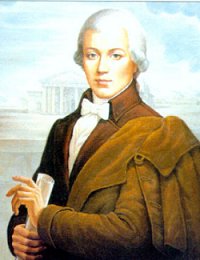 W
WLaurynas Gucevičius was an 18th-century architect from the Grand Duchy of Lithuania, and most of his designs were built there.
 W
WCount Hans Johann Moritz Hauke was a Polish general and professional soldier of German extraction. He was a member of the Hauke-Bosak family.
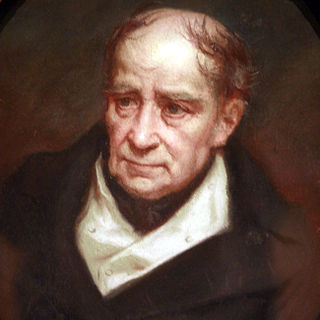 W
WJózef Maria Hoëné-Wroński was a Polish Messianist philosopher, mathematician, physicist, inventor, lawyer, occultist and economist. He was born Hoene to a municipal architect in 1776 but changed his name in 1815.
 W
WAntoni Barnaba Jabłonowski (1732–1799) was a Polish noble (szlachcic) and political activist.
 W
WWładysław Franciszek Jabłonowski was an English-Polish-general. Fighting also for France in the Napoleonic Wars, he is the first known Polish general of African descent.
Marek Jandołowicz, O.C.D. (1713–1799), was a Polish priest and Discalced Carmelite friar, who was a patriot in the history of his nation.
 W
WJakub Krzysztof Jasiński of Rawicz Clan was a Polish general, and poet of Enlightenment. He participated in the War in Defence of the Constitution in 1792, was an enemy of the Targowica Confederation and organized an action against its supporters in Vilnius. He participated also in the Kościuszko Uprising, during the course of which he was killed in the Battle of Praga in 1794.
 W
WBerek Joselewicz was a Polish merchant of Jewish heritage and a colonel of the Polish Army during the Kościuszko Uprising. Joselewicz commanded the first Jewish military formation in modern history excluding Prince Potemkin's Israelovsky.
 W
WJan Kiliński was a Polish soldier and one of the commanders of the Kościuszko Uprising. A shoemaker by trade, he commanded the Warsaw Uprising of 1794 against the Russian garrison stationed in Warsaw. He also became a member of Polish provisional government.
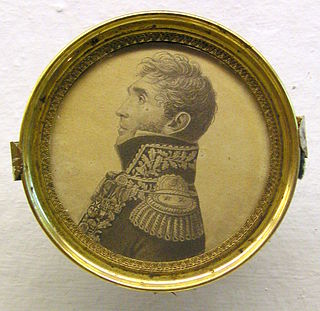 W
WStanisław Klicki of Prus (1775–1847) was a Polish military commander, aristocrat and a general of the Polish forces. For his service during the Napoleonic Wars, he was made a baron of the French Empire by Napoleon Bonaparte. During the November Uprising he commanded all Polish forces on the left bank of the Vistula River.
 W
WMarcin Knackfus was a Polish–Lithuanian Neoclassical architect of German descent. Born near Warsaw, he worked in the Grand Duchy of Lithuania and particularly in its capital Vilnius. He was a tutor of Laurynas Gucevičius.
 W
WBaron Karol Otto Kniaziewicz was a Polish general and political activist.
 W
WMichał Ambroży Kochanowski (1757–1832) was a Chamberlain of Stanisław August Poniatowski since 1778; deputy to the Great Sejm (1788–1792), councillor of Diplomatic Section of Provisional Temporary Council, member of the Supreme National Council during the Kościuszko Insurrection (1794), member of the government in the Duchy of Warsaw (1808–1815), senator, castellan and voivode in the Congress Poland since 1816, member of the Administrative Council during the November Uprising in 1831.
 W
WHugo Stumberg Kołłątaj, also spelled Kołłątay, was a prominent Polish constitutional reformer and educationalist, and one of the most prominent figures of the Polish Enlightenment. He served as Deputy Chancellor of the Crown, 1791–92. He was a Roman Catholic priest, social and political activist, political thinker, historian, philosopher, and polymath.
 W
WJan Konopka was a lieutenant in the Kościuszko Uprising, captain of the Polish Legions in Italy, regiment commander in the Legion of the Vistula, as well as general of the French Army and the Duchy of Warsaw. Konopka has been described as "a brave man with cold mind in combat."
 W
WAndrzej Tadeusz Bonawentura Kościuszko was a Polish-Lithuanian military engineer, statesman, and military leader who became a national hero in Poland, Lithuania, Belarus, and the United States. He fought in the Polish–Lithuanian Commonwealth's struggles against Russia and Prussia, and on the US side in the American Revolutionary War. As Supreme Commander of the Polish National Armed Forces, he led the 1794 Kościuszko Uprising.
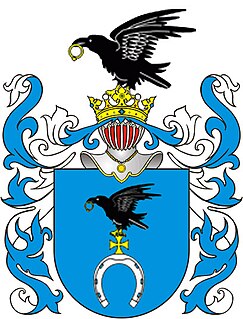 W
WCount Kazimierz Krasiński (1725–1802) was a Polish noble, politician and patron of art. He was the son of Antoni Krasiński and Barbara Zielińska.
 W
WFeliks Walezjusz Władysław Łubieński was a Polish politician, jurist, Minister of Justice in the Grand Duchy of Warsaw, starosta of Nakieł, a member of the Friends of the Constitution and a Prussian count. With the Code Napoleon, he introduced civil marriage and divorce in traditionally Catholic Poland.
 W
WAntoni Madaliński (1739–1805) – Polish Lieutenant General, commander of 1st Greater Polish National Cavalry Brigade during Kościuszko Uprising.
 W
WKazimierz Małachowski of Gryf (1765–1845) was a Polish military officer and a general of both the armed forces of Duchy of Warsaw and the Kingdom of Poland. A recipient of Virtuti Militari for his actions during the Napoleonic Wars, he is best remembered as one of the last Commanders-in-Chief of the failed November Uprising. He assumed command shortly after the disastrous battle of Warsaw.
 W
WStanisław Mokronowski (1761-1821) was a prominent member of the Polish landed gentry of Bogoria coat of arms. A general of the Polish Army and a royal Chamberlain, Mokronowski took part in both the Polish–Russian War of 1792 and Kościuszko's Uprising of 1794.
 W
WJulian Ursyn Niemcewicz was a Polish poet, playwright and statesman. He was a leading advocate for the Constitution of 3 May 1791.
 W
WAleksander Orłowski was a Polish painter and sketch artist, and a pioneer of lithography in the Russian Empire.
 W
WMarcin Odlanicki Poczobutt was a Polish–Lithuanian Jesuit, astronomer and mathematician. He was professor of Vilnius University for over 50 years, serving as its rector from 1780 to 1799. The crater Poczobutt on the Moon is named after him.
 W
WPrince Józef Antoni Poniatowski was a Polish general, minister of war and army chief, who became a Marshal of the French Empire during the Napoleonic Wars.
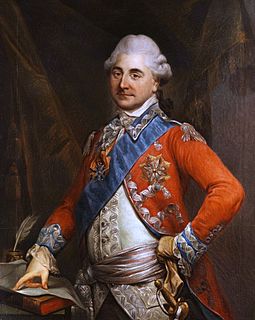 W
WStanisław II August, known also by his regal Latin name Stanislaus II Augustus, was King of Poland and Grand Duke of Lithuania from 1764 to 1795, and the last monarch of the Polish–Lithuanian Commonwealth.
 W
WCount Roman Ignacy Potocki, generally known as Ignacy Potocki, was a Polish nobleman, member of the influential magnate Potocki family, owner of Klementowice and Olesin, a politician, writer, and office holder. He was the Marshal of the Permanent Council in 1778–1782, Grand Clerk of Lithuania from 1773, Court Marshal of Lithuania from 1783, Grand Marshal of Lithuania from 16 April 1791 to 1794.
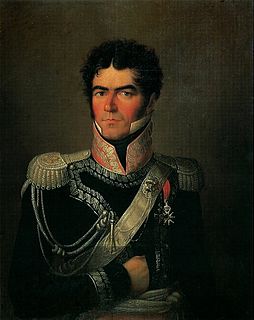 W
WPrince Eustachy Erazm Sanguszko (1768–1844) was a Polish nobleman, general, military commander, diplomat and politician.
 W
WPrince Kazimierz Nestor Sapieha (1757–1798) was a Polish-Lithuanian noble (szlachcic) and one the creators of the 3 May Constitution.
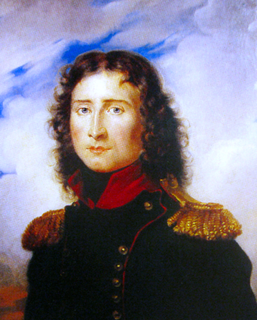 W
WJoseph Sulkowski was a Polish captain in the French Revolutionary Army and friend and aide de camp to Napoleon Bonaparte. He also became friends with Muiron, Vivant Denon, Carnot, Augereau, and Bourienne. His name is engraved on the Arc de Triomphe, on the 28th column, as SULKOSKY.
 W
WTomasz Antoni Wawrzecki (1753–1816) was a distinguished Polish politician and military commander, a general of the Polish Army. During Kościuszko's Uprising in Warsaw he succeeded Tadeusz Kościuszko as the commander of the Polish forces. His surrender to the Russian troops on 16 November 1794 marked the effective end of the uprising.
 W
WKazimierz Wojniakowski was a Polish painter, illustrator and Freemason, known primarily for his portraits in the sentimentalist style.
 W
WJózef Rufin Wybicki was a Polish nobleman, jurist, poet, political and military activist of Kashubian descent. He is best remembered as the author of "Mazurek Dąbrowskiego", which in 1927 was adopted as the Polish national anthem.
 W
WPrince Józef Zajączek was a Polish general and politician.
 W
WIgnacy Wyssogota Zakrzewski (1745–1802) was a notable Polish nobleman, politician, art collector, Freemason, and the Mayor of Warsaw during the last years of the Polish–Lithuanian Commonwealth, in 1792 and 1794.